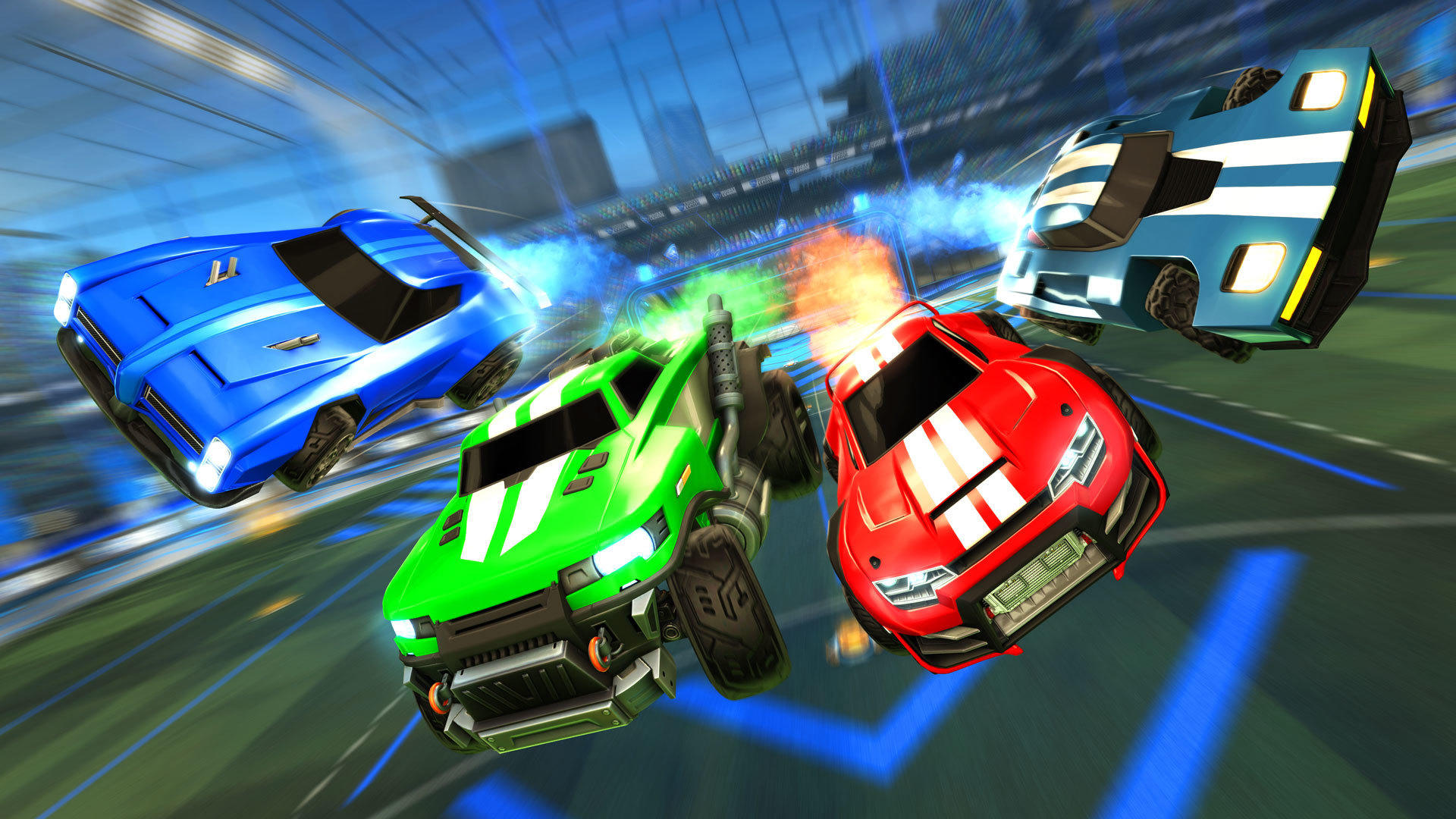Finnish study claims our brains sync-up while gaming together
The experiment was inspired by, of all things, an episode of Top Gear.

Researchers at the University of Helsinki have published a study that examines the brainwave synchronisation of people playing a simple driving game in pairs. The headline claim, of course, is that the results suggest peoples' brainwaves synchronise while playing a co-operative racing game. The participants' brains were activating in a similar way to how they would during face-to-face interaction, and "inter-brain neural synchronization has been linked with empathy and cooperation" in such situations.
There are necessary caveats to this: the study is relatively small-scale (it examined 42 pairs of players), and, while it does show activity that suggests a particular conclusion, it wouldn't be reasonable to extrapolate this as definitive proof. With that said, it was also published in Neuropsychologia, which is a peer-reviewed and respected journal in the brain field.
Participants were physically separated in soundproof rooms, and played a game "Inspired by an episode of the British television series Top Gear (Churchward and Doyle, 2008), in which participants were tasked to drive double-deckered cars, with the person on top turning the steering wheel and the person on bottom operating the pedals." A simple videogame along these lines was created, and participants had to drive a car around a racing track as fast as possible, with one of them steering and one in charge of acceleration and brakes. The tracks featured obstacles to be avoided, and there were four circuits which all participants drove in both roles.
Take my word for it: this study contains some amazingly granular data about the length and timing of button presses.
The study notes that "Collaboration in the task was associated with higher synchrony in the alpha, beta, and gamma bands, when comparing the synchrony between real pairs and performance-matched false pairs." This admittedly limited data set shows a connection between performance in the game and gamma synchronization in particular, where the gamma waves associated with high cognitive function are synchronizing between participants.
What this actually means is not something this particular study set out to answer.
"We were able to show that inter-brain phase synchronization can occur without the presence of the other person," says doctoral researcher Valtteri Wikström, one of the study's authors. "This opens up a possibility to investigate the role of this social brain mechanism in online interaction.”
Keep up to date with the most important stories and the best deals, as picked by the PC Gamer team.

The study's wider context isn't so much about games specifically as the increased screen time that most of us now experience, and the concerns about how this is affecting both us and especially the younger generations who've grown up as digital natives. The screens aren't going away, so it's crucial to understand what our brains may be capable of during such interactions.
"If we can build interactive digital experiences which activate fundamental mechanisms of empathy, it can lead to better social relationships, well-being, and productivity online," says project manager Katri Saarikivi. I admire the optimism!
Wikström reckons that ultimately these measurements of brain synchronization during online co-operation can be used to measure the 'quality' of social interaction, and that understanding better how they work will allow software developers to build in this direction. That's a seriously big claim, and one that looks far beyond what this study has actually shown.
It is funny, though, to think about this in the context of my own never-ending love affair with Rocket League. I mainly play competitive 3vs3 with randoms, and lurk somewhere in mid-Diamond. And in some games you and your teammates are just on the same page: passing it around, covering for each other, moving into the right positions, without any explicit communication going on. Other times, none of you gel and it's a mess. This is obviously just my own anecdote about an unrelated game, but you sense there's something to this. Over a lifetime of online gaming, I've felt like I 'synced' with teammates more times than I could say.
Here is the full study, 'Inter-brain synchronization occurs without physical co-presence during cooperative online gaming', published in the journal Neuropsychologia. The researchers behind it are: Valtteri Wikström, Katri Saarikivi, Mari Falcon, Tommi Makkonen, Silja Martikainen, Vesa Putkinen, Benjamin Ultan Cowley, and Mari Tervaniemi.

Rich is a games journalist with 15 years' experience, beginning his career on Edge magazine before working for a wide range of outlets, including Ars Technica, Eurogamer, GamesRadar+, Gamespot, the Guardian, IGN, the New Statesman, Polygon, and Vice. He was the editor of Kotaku UK, the UK arm of Kotaku, for three years before joining PC Gamer. He is the author of a Brief History of Video Games, a full history of the medium, which the Midwest Book Review described as "[a] must-read for serious minded game historians and curious video game connoisseurs alike."

